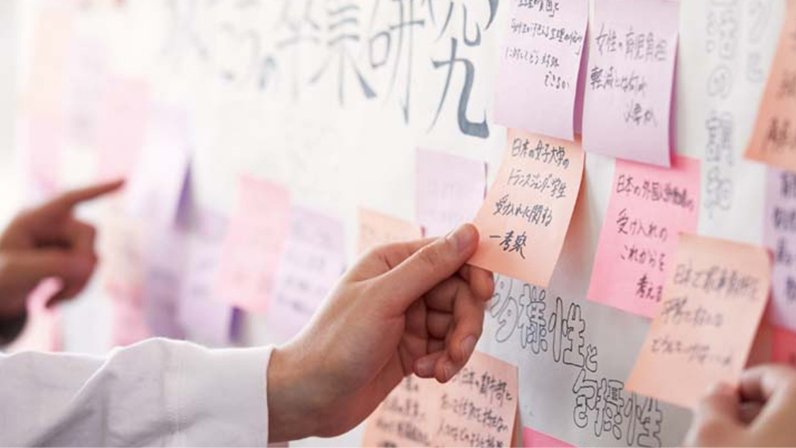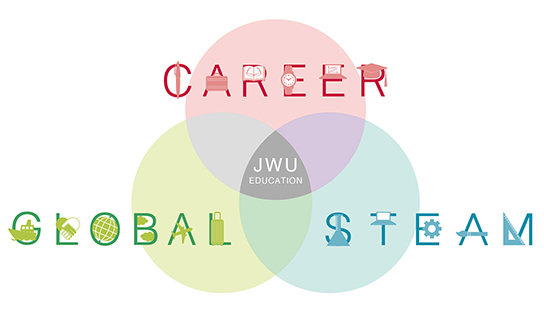To become a specialist in child studies with advanced problem-solving skills
The Department of Child Studies offers a curriculum based on the educational policy of “observing children and learning from children.” Students deepen their learning about children through direct experiences with children and the environment surrounding them. In small-group classes, students engage in discussions with each other, and through a rich learning experience, they develop new perspectives and thoughts and discover new facets of themselves.
Features of the Department
Three main areas of study based on child studies
The Department of Child Studies offers subjects based on three pillars of study. Students learn a wide range of theories and practices so that they will be able to address the rapidly diversifying and complex childcare and education settings, including a comprehensive understanding of children's mental and physical development.
In the graduation study seminars that begin in the third year, students work on their own research projects from among the wide range of areas of specialization of the faculty members, including psychology, pedagogy, health, culture and society, and compile them into a graduation thesis.
Iterative cycle of “theory” and “practice”
Theory learned in the classroom is important, but gaining experience through actual contact with children is equally important for child studies. Based on the educational policy of “observing children and learning from children,” fieldwork is conducted from the second year. By learning theory through practice, students gain a deeper understanding and develop sound knowledge and a rich imagination.
Completing a child studies curriculum leads to qualification acquisition
By completing the prescribed subjects, students can obtain a teaching license for kindergarten and junior high school (home economics) and a qualification as a nursery teacher. Students can also acquire other qualifications for career development.
The four years of study at the Department of Child Studies
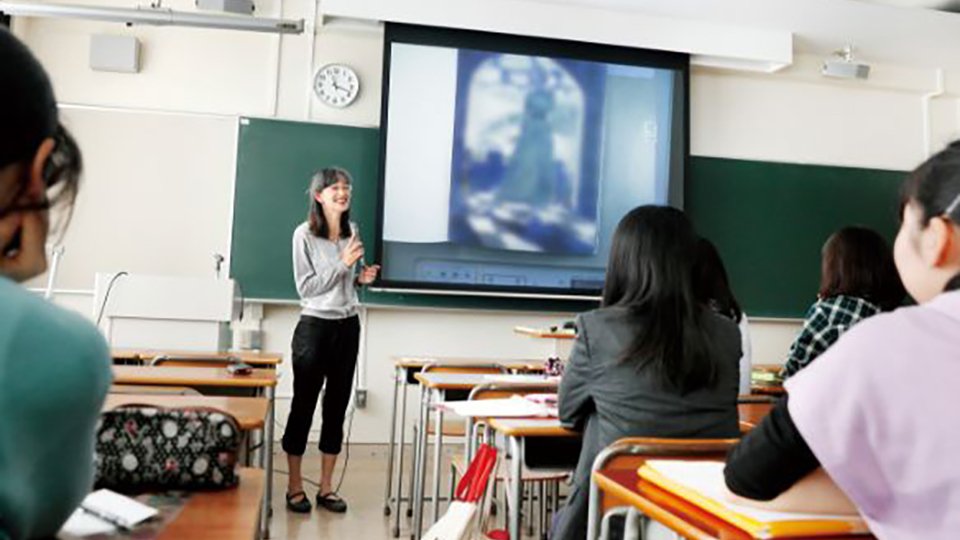
First year: Gaining the overall picture of child studies and raising awareness of issues
Students grasp the overall picture of child studies through “Introduction to Child Studies.” As the first step in learning, students will increase their awareness of issues related to child studies.
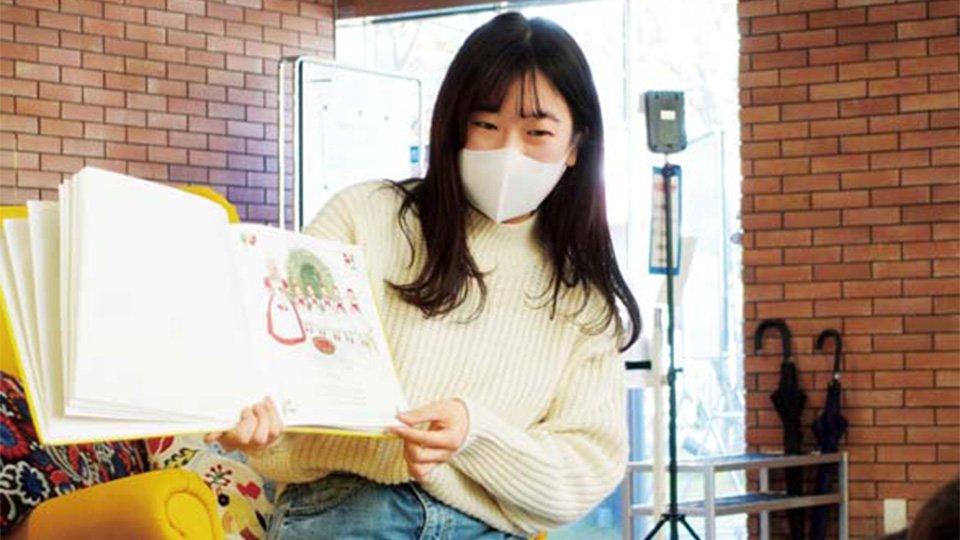
Second year: Practical learning through lectures and seminars
Students who wish to enroll in the Child-care Provider Training Course (they will major this course in the first year). Students acquire practical learning by taking specialized subjects in various areas.
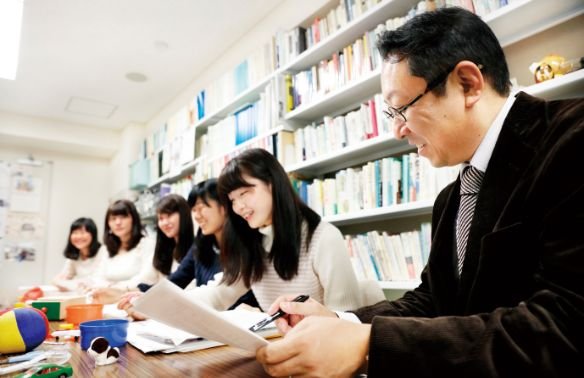
Third year: Deepening specialized learning through small-group studies
Students select an area of interest from among those studied in the seminars such as "Study of Literature" and "Problem Analysis Study of Research Methods" and deepen their research in small groups.
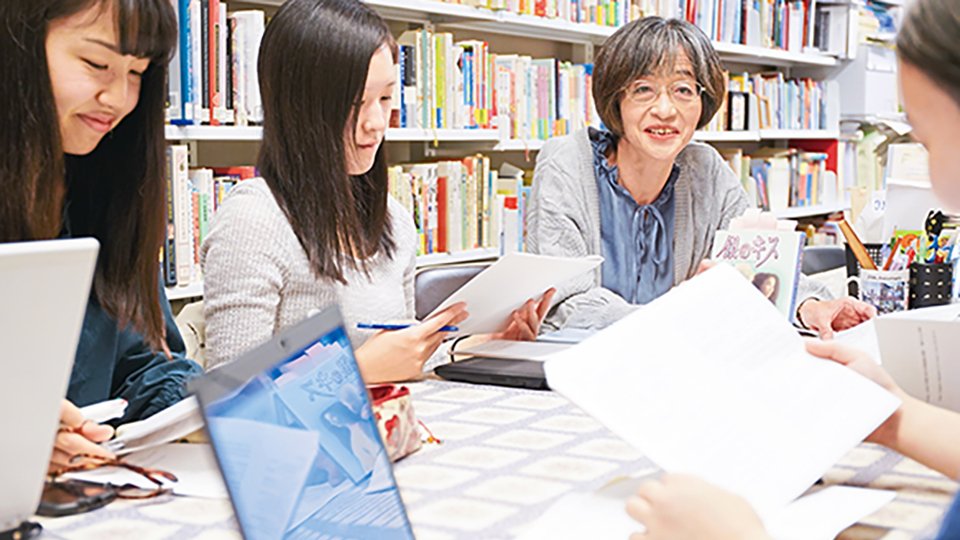
Fourth year: Pursuance of set theme and compilation of graduation thesis
In the "Advanced Seminar," students further pursue themes of interest. Together with the "Survey of Child Studies," students will compile the results of their four years of study into a graduation thesis.
Class introduction
Fieldwork Exercise (Society and clinical practice) C |Second year
We emphasize experiential classes where students actually interact with and learn from children.
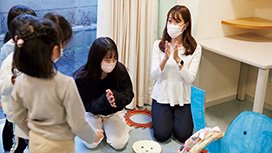
Associate Professor
Movement development, dance Education
Fieldwork Exercise is a research-type class in which students are divided into small groups to learn knowledge and theories about children through visits to and practical exercises at cooperating facilities and institutions. In "Fieldwork of Child Studies (Sociological and clinical) C," students themselves plan, prepare, and hold an exercise event in order to learn and better understand children's motor development through hands-on experience.
What is important in supporting toddlers in their exercises is to ensure that the teaching of skills itself does not become the objective. What is most important is to create an environment that allows children to experience the joy of exercise through play, so we always consider “whether the event allows children to engage in physical activity enthusiastically” and we instruct students to carefully plan and prepare for the event with everyone sharing their opinions. Through such group discussions and collaborative work, students learn to respect each other's opinions and become motivated to create something better towards the same goal. We hope that students will further develop their interest in child studies through the “co-creation” activities in this class.
Faculty member introduction
Faculty members with a wide range of specialties provide education.


